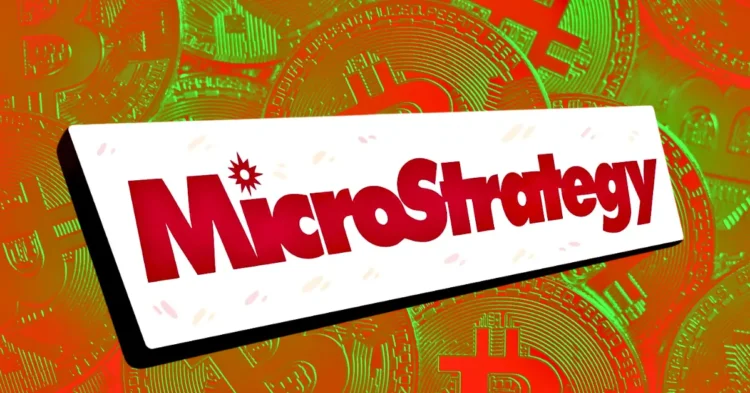In a recent research analysis, CoinShares has shed light on MicroStrategy’s bold strategy to acquire an additional $42 billion worth of Bitcoin. This ambitious endeavor is intertwined with significant risks that potential investors and stakeholders should be aware of. MicroStrategy recently declared a $21 billion at-the-money stock offering to gather the necessary funds for this Bitcoin acquisition, a move that forms part of its extensive three-year plan to bolster its Bitcoin reserves.
CoinShares’ insights into MicroStrategy’s strategy underscore several critical factors that could influence the success of this plan. Let’s delve into the details to understand the complexities and challenges involved.
Favourable Financing Conditions
A crucial element for the success of MicroStrategy’s Bitcoin acquisition plan is the necessity for favorable financing conditions. According to CoinShares, the company must ensure that there is a sufficient demand for its convertible notes. This demand is pivotal as it would enable the company to acquire Bitcoin without imposing unnecessary dilution on shareholders, and importantly, at a lower cost of capital. However, the landscape has shifted since 2021 when MicroStrategy managed to raise debt capital through zero-coupon convertibles. The current scenario sees a rise in coupon rates for new issues, posing a potential challenge for this strategy.
MicroStrategy’s Heavy Reliance on BTC Holdings
Another significant aspect highlighted by CoinShares is MicroStrategy’s substantial dependence on its Bitcoin holdings. Should the company decide to liquidate a portion of its Bitcoin reserves, it might jeopardize its valuation premium. Additionally, such disposals could trigger substantial tax events due to the US$7.7 billion capital appreciation of its Bitcoin holdings since the onset of its Bitcoin purchases. Looking ahead, the company might face taxation on unrealized gains associated with its Bitcoin holdings. However, Michael Saylor, MicroStrategy’s founder, has previously stated his lack of interest in selling the company’s Bitcoin, emphasizing that “Bitcoin is the exit strategy.”
BTC Business May Outgrow Software Business
CoinShares also pointed out that MicroStrategy’s Bitcoin ventures might have surpassed its traditional software business. There is an implicit concern that the cash flows generated from their legacy operations may not suffice to cover future coupon payments. Despite the looming risk of dilution due to massive financing efforts, investor confidence in MicroStrategy remains robust. This confidence is reflected in the market, as MSTR shares saw an approximately 8% rise in early trading following Bitcoin’s price surge to $70,000.
In conclusion, while MicroStrategy’s aggressive Bitcoin acquisition strategy presents a potentially lucrative opportunity, it is not devoid of significant risks. The company must navigate these challenges carefully to ensure the sustainability and success of its ambitious Bitcoin plans. Investors and stakeholders should closely monitor these developments, as the evolving cryptocurrency landscape continues to shape the future of such bold financial endeavors.










